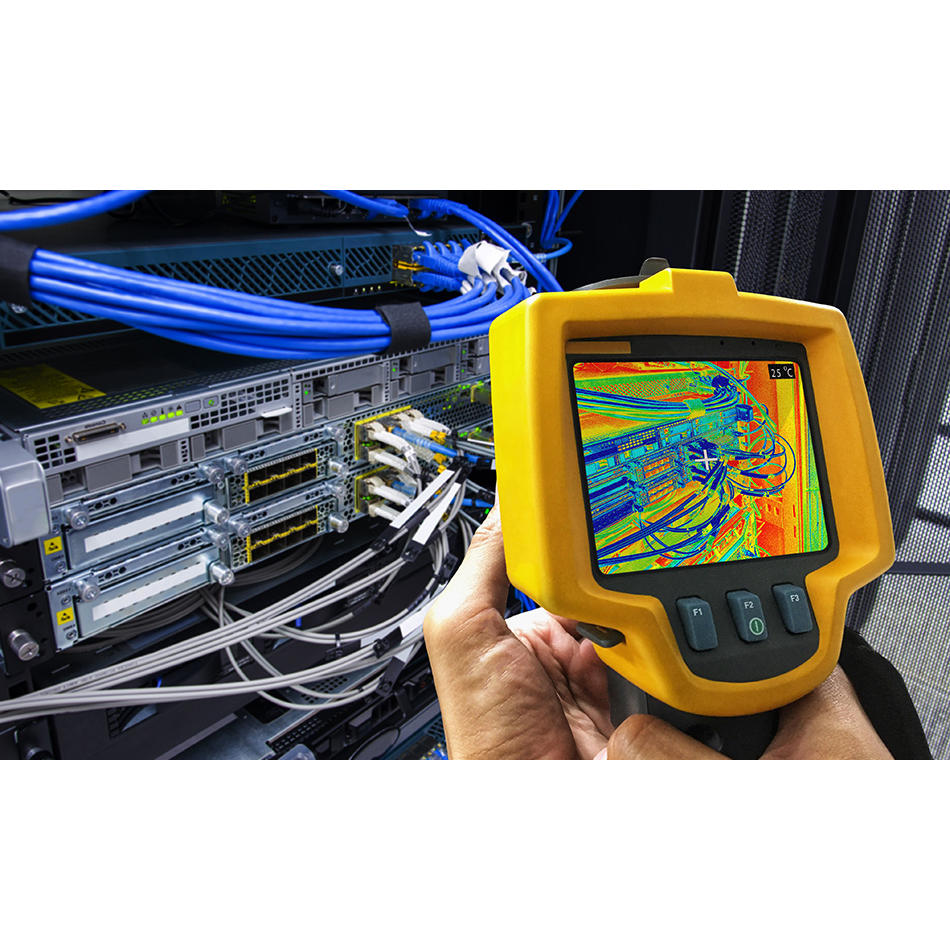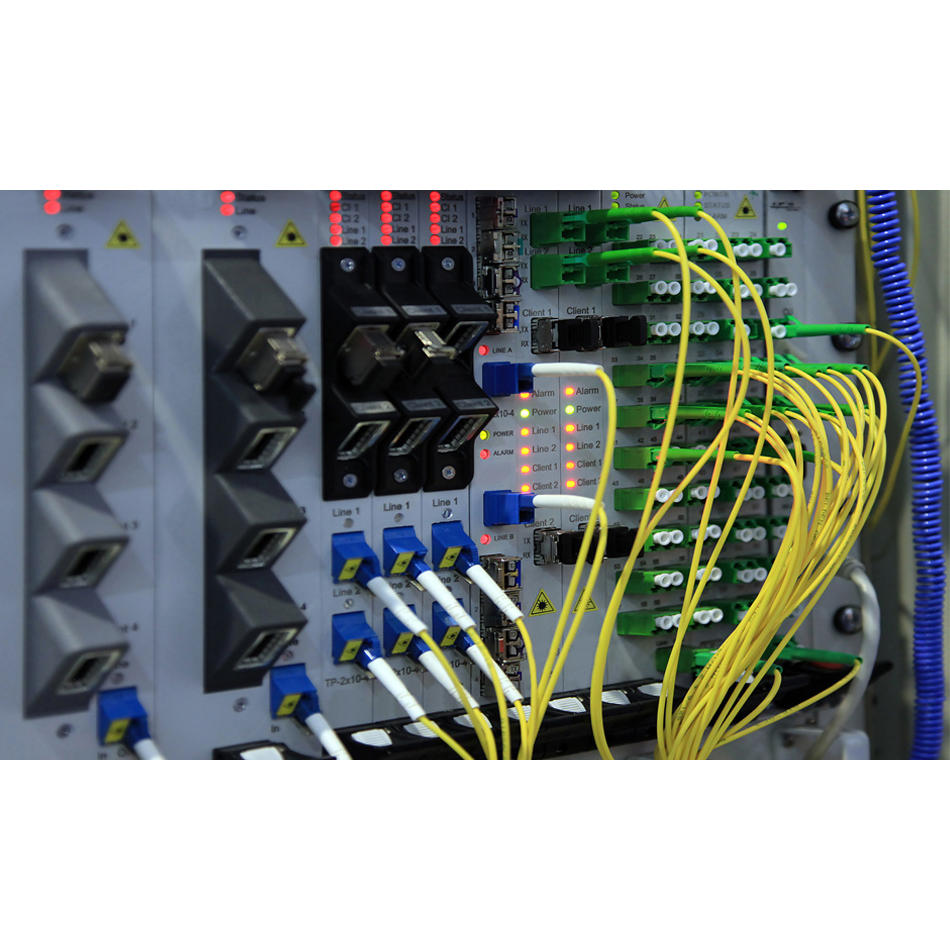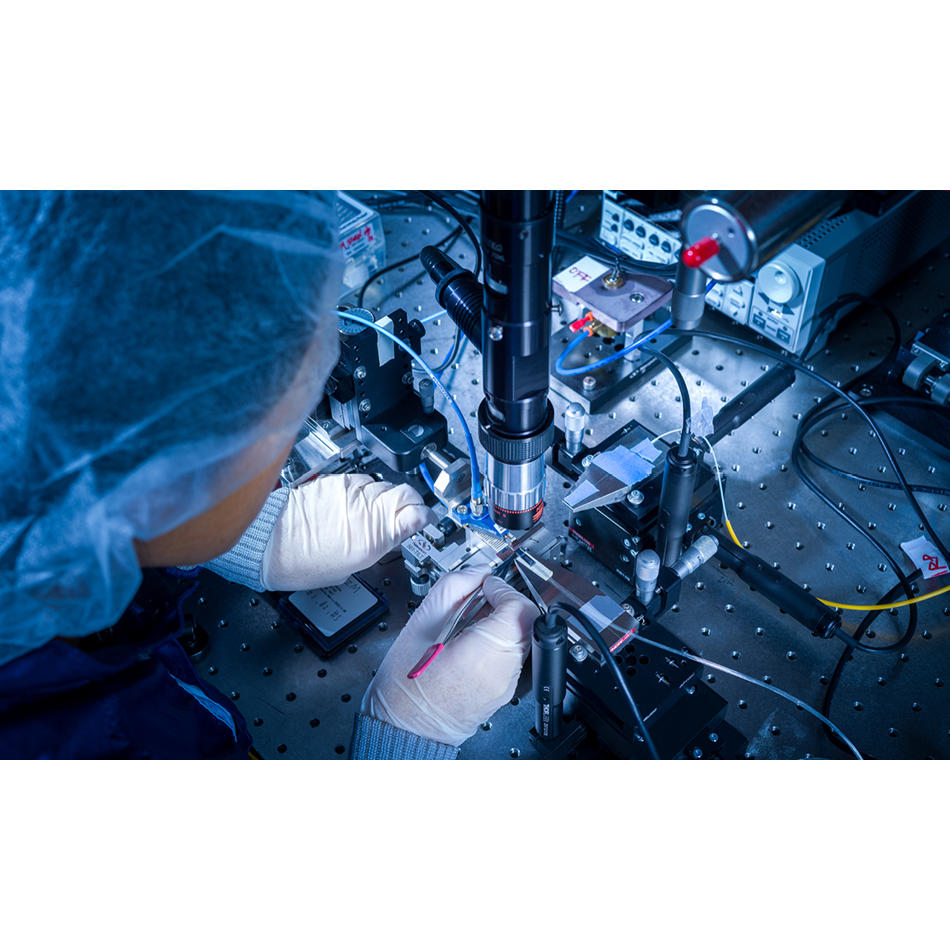Advanced Sensors and AI: The Eyes and Ears of the AI Revolution
Discover why sensors are foundational to AI’s transformative potential—and how Coherent is at the forefront of enabling emerging applications from 3D sensing to in-cabin monitoring.
November 15, 2024 by Coherent
In a recent episode of our new podcast Now, Next, and Beyond, Coherent CMO Sanjai Parthasarathi highlighted the crucial role sensors play in the AI-powered world, saying “Sensors are the eyes and ears of AI". It’s a statement that should make you pause and consider: As we transition from human-generated to computer-generated data, sensors will become the primary means for computers to acquire, analyze, and act on data.
Today, sensors are ubiquitous. They unlock our phones, vacuum our homes, help us avoid car collisions, monitor traffic flow, manage our home temperatures, assist surgeons, and thousands of other everyday applications. Everywhere, sensors serve as the interface between the physical and digital realms, transforming our experiences into data that informs, educates, and entertains. It’s no wonder the sensor market is projected to nearly double in the next decade, driven by the proliferation of sensors that mimic human senses: Vision, hearing, touch, smell, and taste.
THE AI IMPACT
Enter advanced artificial intelligence (AI). Thanks to advances in AI, sensors are now set to take on even more significance across a range of industries. And the proliferation of sensors and the advances in AI are creating an unprecedented opportunity.
But it is also creating a significant challenge.
The amount of data created every day is staggering to think about. It’s approximately 402 million terabytes (TBs). Daily. That’ll total about 150 zettabytes by the end of 2024.1 Current models estimate that the total amount of data transmitted on Earth daily is in the zettabyte range (1 zettabyte = 1 billion terabytes).
Given the world’s increasing dependence on digital communication, the growing ubiquity of data-heavy A.I. output, and the exponential increase in sensor-connected devices, it's plausible to expect that the amount of data transmitted around the globe each day could reach multiple zettabytes by 2032.
One parallel trend to consider is that growth in internet traffic is not the sole driver of data growth. More powerful compute capacity, and AI, is moving to the network edge in smartphone, autonomous systems (driving, robots), and in the enterprise. The movement of data whether it be centimeter or kilometers here on earth and to space requires a new generation of advanced communication components and platforms.
It’s an incredible challenge – and an amazing opportunity to improve the lives of billions around the world. AI can assist with health diagnoses, ways to combat food shortages, reduce manufacturing costs, build safer vehicles and improve the overall health of the planet.

VCSELs: WHERE LASERS MEET SENSING
Vertical cavity surface emitting lasers (or VCSELs) are a key component for sensing use cases--from navigation in optical computer mice, body tracking in gaming consoles, to proximity and facial recognition sensors in smartphones and tablet computers. They’re also used in automotive sensing applications to enable autonomous driving as well as driver and passenger monitoring applications. And they’re a primary component in 3D sensing of all types.
For in-cabin sensing, as opposed to LEDs, VCSELs are ideal as 940 nm VCSEL produces virtually no visible light. The spectrally narrow output of the VCSELs gives them another advantage over LEDs. Specifically, it’s much easier to pair a VCSEL with an optical ‘bandpass filter’ to eliminate ambient light (both sunlight and artificial sources) from the scene. Ambient light can introduce noise and errors in the monitoring systems, leading to false readings or reduced accuracy.
The bandpass filter is an optic component placed in the camera system that only transmits a certain range of wavelengths. When used with a VCSEL, the bandpass filter can reject virtually everything but a very small range around the peak emission wavelength. This enables proper operation even in the presence of very bright ambient light (like direct sunlight). In contrast, a much broader bandpass filter must be used with an LED to pass all its light. But this also allows through more unwanted ambient light.
Another characteristic of sensing VCSELs is the ability to modulate (pulse) output at very high speeds (over 50 MHz). LEDs can’t get anywhere near this. The benefit of this fast pulsing is that it can be used for 3D sensing, which can be accomplished with either direct time-of-flight (dToF) or indirect time-of-flight (iToF) techniques. Both dToF and iToF techniques benefit from fast pulses as they significantly enhance depth resolution and precision.
Coherent has a mature platform for VCSEL fabrication based on industry-leading 6-inch GaAs wafers. This has enabled us to become the volume leader in this technology and consistently deliver devices with outstanding reliability and performance.

COHERENT: A SENSE FOR THE FUTURE
As a global leader in the manufacturing of lasers, sensors, VCSELs, transceivers, and the underlying photonic technologies, Coherent is at the center of the remarkable sensor story as well as the technologies that get sensor data to and from datacenters.
In fact, if you were to look at any point of the network – from the point of sensing (for example, your phone) to the cell tower to the short- and long-range optical technologies that ferry data via light along the network to the datacenter and into the GPUs that process the data, and then all the way back to the originating source – you'll find Coherent components at every step of the way.
From cutting-edge 3 nm chips to established 100 nm+ processes, Coherent lasers, optics, and advanced composite materials ensure consistent, cost-effective, and reliable wafer manufacturing. Our innovative materials – including hybrid ceramics and silicon carbides – yield mechanical components that meet the extreme demands of EUV lithography, as do our laser optics and diamond windows. Plus, our full suite of lasers can power nearly any inspection task and perform diverse materials processing jobs such as marking and annealing.
BRINGING IT HOME
At Coherent, we understand building and improving the ecosystem for sensors—and the AI ecosystem— ultimately involves scaling hyperscale datacenters, which presents unique connectivity bandwidth and speed challenges. As a leading innovator and a large-scale vendor, our transceivers, active optical cables (AOCs), and instrumentation support cutting-edge speeds. Driven by growing AI/ML adoption, 800G transceivers are already shipping in production (and our 1.6T transceivers will ship soon). And our unparalleled vertical integration and high-volume production facilities make us the industry’s most dependable partner.

IT ALL HINGES ON DATA TRANSMISSION
Why is the network so important when it comes to advanced AI and the proliferation of sensors? ChatGPT and other large language models (LLMs) demand massive computing requirements.
All indications are that AI capabilities will push out to devices and applications that connect to sensors and IoT networks. Native AI-enabled smartphones, sophisticated robotics, autonomous mobility, sophisticated personal health monitoring, environmental monitoring, and always-on video will reshape how carriers and datacenters operate. This is a fundamental transformation of network topologies, which have largely existed as a means of pushing data and services to devices.
Edge devices with AI capabilities, native capabilities, will require data throughput far more than today’s capabilities. The comfortable relationship between hyperscale datacenters and edge networks will be upended with a third layer, powerful devices that will generate and consume data at exponential rates. This is the fundamental transformation that will drive next-generation networks.
Transceiver speed is a cornerstone for high-performance networks. 800G transceivers are shipping in production volume today, and 1.6T transceivers are fast approaching production scale. In five years, the demand for 800G and 1.6T datacom transceivers is expected to be greater than all other types of datacom transceivers combined, largely driven by AI and ML.
Faster transceivers are just one component in the data networking stack. The combination of faster transceivers, detectors, switches, direct and optical connection cables, and high-performance optics combine to create the foundation for next-generation networks capable of connecting billions of devices generating exabytes of data at a never-before-seen rate.
THE FUTURE IS PROMISING
As we look to the future, it's clear that the relationship between sensors, AI, and advanced photonics will drive the next wave of technological innovation. Coherent stands at the forefront of this revolution, providing the critical components that power everything from data transmission to AI-driven applications. With our commitment to innovation and a deep understanding of the complexities involved, we are poised to continue leading the industry. Together, we're not just keeping pace with the demands of today; we're shaping the possibilities of tomorrow. The future of data, sensing, and AI hinges on the seamless integration of these technologies, and Coherent is dedicated to making that future a reality.
Learn more about Coherent VCSELs for sensor applications and Coherent transceivers for datacom use cases.
--------
1 https://explodingtopics.com/blog/data-generated-per-day





